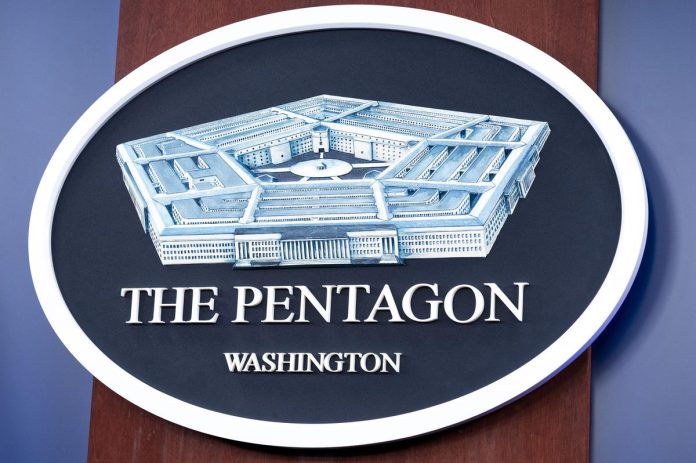The Trump administration has initiated a major shift in defense policy by instructing the Pentagon to implement significant budget cuts. This directive aims to reduce military spending by 8% annually over the next five years, a move expected to reshape U.S. defense priorities. While some sectors remain unaffected, others face potential restructuring, sparking debates on national security, economic impact, and political consequences.
In This Article:
The Budget Cut Mandate
Defense Secretary Pete Hegseth has issued orders to reduce the Pentagon’s budget from its current $850 billion to approximately $560 billion by 2030. The administration cites the need for fiscal responsibility and a streamlined military structure as the primary reasons for the cutbacks. The directive emphasizes eliminating inefficiencies while maintaining operational readiness.
Despite the budget reductions, key military functions such as operations at the U.S.-Mexico border, nuclear weapons programs, and missile defense systems are exempt from cuts. Additionally, the Indo-Pacific Command and Space Command will continue receiving full funding, highlighting their strategic importance in countering global threats.
Strategic Shift and Military Readiness
The Trump administration’s approach signifies a shift in defense strategy, focusing on efficiency rather than sheer expenditure. Hegseth has framed the cuts as a means to “revive the warrior ethos” and prioritize frontline capabilities over bureaucratic overhead. However, critics argue that reducing the defense budget could compromise military readiness, limit technological advancements, and weaken U.S. global influence.
While the administration contends that the cuts will not undermine national security, some defense analysts warn that a shrinking budget could hinder modernization efforts. Investments in emerging military technologies, cybersecurity, and next-generation weapons may face slowdowns, potentially affecting the U.S. military’s long-term superiority.
Impact on the Defense Industry
The defense sector has felt immediate repercussions, with major contractors experiencing stock fluctuations. Palantir Technologies, a company heavily reliant on government contracts, saw its shares drop by 10% following the announcement. Other defense giants, including Northrop Grumman and L3 Harris, also faced market downturns.
Despite the initial financial shock, industry analysts suggest that companies focusing on artificial intelligence, autonomous warfare, and cybersecurity may still find opportunities within the restructured defense budget. As the Pentagon shifts priorities, firms investing in cost-effective and technologically advanced solutions could benefit.
The Role of the Department of Government Efficiency (DOGE)
The Department of Government Efficiency (DOGE), a newly established agency led by Elon Musk, is playing a key role in the budget review. The agency has been tasked with identifying and eliminating wasteful government spending, making it a driving force behind the cuts. While Musk has advocated for efficiency, critics argue that an aggressive reduction strategy may lead to unintended consequences, including layoffs and disruptions in military operations.
The Pentagon now faces the challenge of balancing cost-cutting measures with maintaining global military commitments. The extent to which the Department of Defense can optimize resources without jeopardizing national security remains to be seen.
Political and Global Reactions
The proposed budget cuts have sparked intense political debates. Supporters of the move argue that reducing military expenditures will alleviate fiscal strain and redirect funds to domestic priorities such as infrastructure and economic growth. However, opponents fear that downsizing the defense budget could embolden adversaries, weaken alliances, and diminish the U.S.’s strategic positioning.
On the international front, allied nations have expressed concerns over the implications of reduced American military funding. NATO partners and Indo-Pacific allies, who rely on U.S. military support, are closely monitoring developments. Any perceived reduction in U.S. defense commitments could prompt allies to reassess their own military strategies and defense spending.
Future Outlook
As the Pentagon navigates these budget reductions, the focus will be on maintaining a strong national defense while ensuring fiscal prudence. The Department of Defense may need to reassess long-term projects, prioritize high-impact initiatives, and leverage technological advancements to maximize efficiency.
While the cuts mark a historic shift in U.S. military policy, their full impact will unfold over time. The balance between economic constraints and security imperatives will define the future of American defense strategy. How the Pentagon adapts to these changes will shape the nation’s global military presence in the years ahead.
The Trump administration’s decision to slash the Pentagon’s budget signals a major transformation in U.S. defense policy. While proponents see it as a necessary step toward financial discipline, critics worry about its implications for military readiness and geopolitical stability. As the Pentagon implements these reductions, the nation will watch closely to determine whether this strategy enhances efficiency or compromises security.
By – Jyothi




